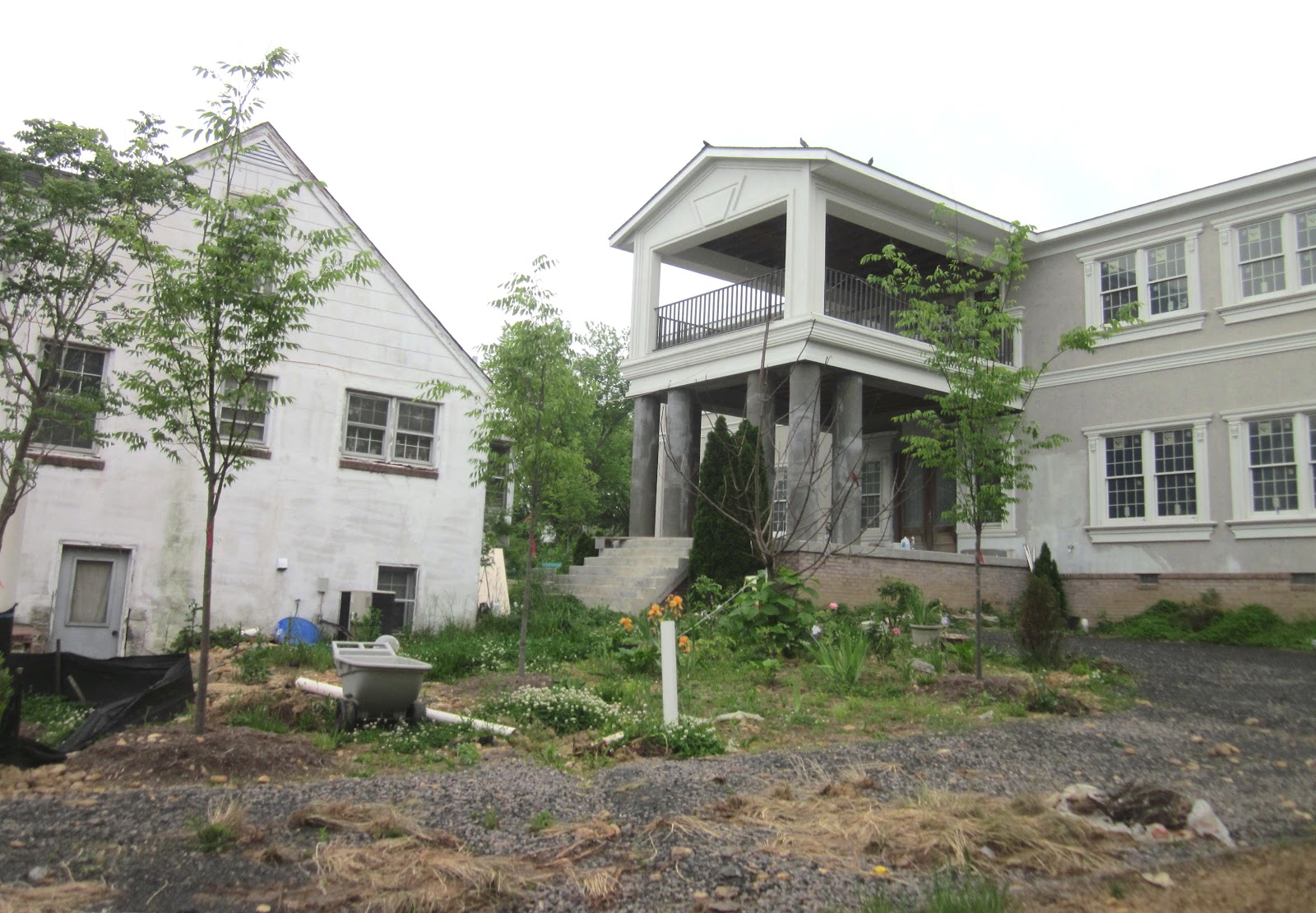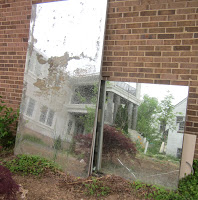Communities have little recourse in dealing with unfinished projects
 |
| A huge structure in the backyard of a small house on Virginia Street has been under construction for years |
Just about every neighborhood in Mason seems to have one—a major home remodeling project that never seems to get finished. Often these houses are eyesores, with front yards full of construction debris.
The house in the photo, on Virginia Street just off Little River Turnpike in Lincolnia Park, for example, has been under construction for at least four years, a neighbor reports.
There doesn’t seem to be much that community residents can do about unfinished construction projects—unless they’re in a neighborhood governed by a homeowners association with bylaws requiring properties to meet certain aesthetic standards.
The Uniform Statewide Building Code (USBC), enforced by county staff, contains provisions regarding time frames for projects under construction. The code is updated periodically—generally every three years—and the provisions that that apply to a particular site are based on the provisions that were in effect when the owner of the property applied for a construction permit, says Ben Boxer, a spokesperson for the Fairfax County Department of Public Works and Environmental Services.
The most recent USBC, which took effect March 1, 2011, “allows the building official to require a three-year timeline for the completion of new, detached single-family dwellings,” Boxer says. Permits may be revoked if no progress on a project has been made within a six-month period of time.
“Extensions to this time frame are permissible if the applicant can demonstrate progress on the project,” he says. “Extensions are handled on a case-by-case basis.”
Regarding the house in the photo, Boxer says, “there is a permit issued for construction, and a recent visit by one of our inspectors has confirmed that there is active construction under way on the project.” The county has not set a deadline for the completion of this project.
If a property owner fails to meet the timeline in the USBC, “the ultimate recourse is to revoke the permit,” Boxer says. “Revocation of the permit means no progress can be made on the project until they apply for a new permit. The only enforcement that would take place after revocation would be to address any unsafe conditions on the site.”
 |
| The debris includes old mirrors |
A permit revocation means that construction must stop, he says. “But it does not require the demolition of existing work, nor does it permit the completion of existing construction until the applicant applies for and obtains a new permit.” And that means the project could languish for many more months as those issues are sorted out.
“There is no authority granted us to force applicants to complete their projects,” Boxer says. “We do work with applicants in an effort to encourage progress on their project and to educate them that it is in their best interest to progress towards completion in order to avoid violations and fees, permit renewal costs and the potential for costly upgrades to their original designs to meet the requirements of updated versions of the USBC.”
Once a permit is revoked, complaints of property maintenance and blight are handled by the Department of Code Compliance. Complaints can be reported online.


Get off your A** and do something FAIRFAX COUNTY BOARD OF SUPERVISORS.
The Board of Supervisors is too busy working on Tysons Corner, far more glamorous, to worry about the little irritating things like their constituents. Besides that the Mason District supervisor will use the Dillon Rule as a great excuse for not being able to do anything that might help the quality of life in Mason District.